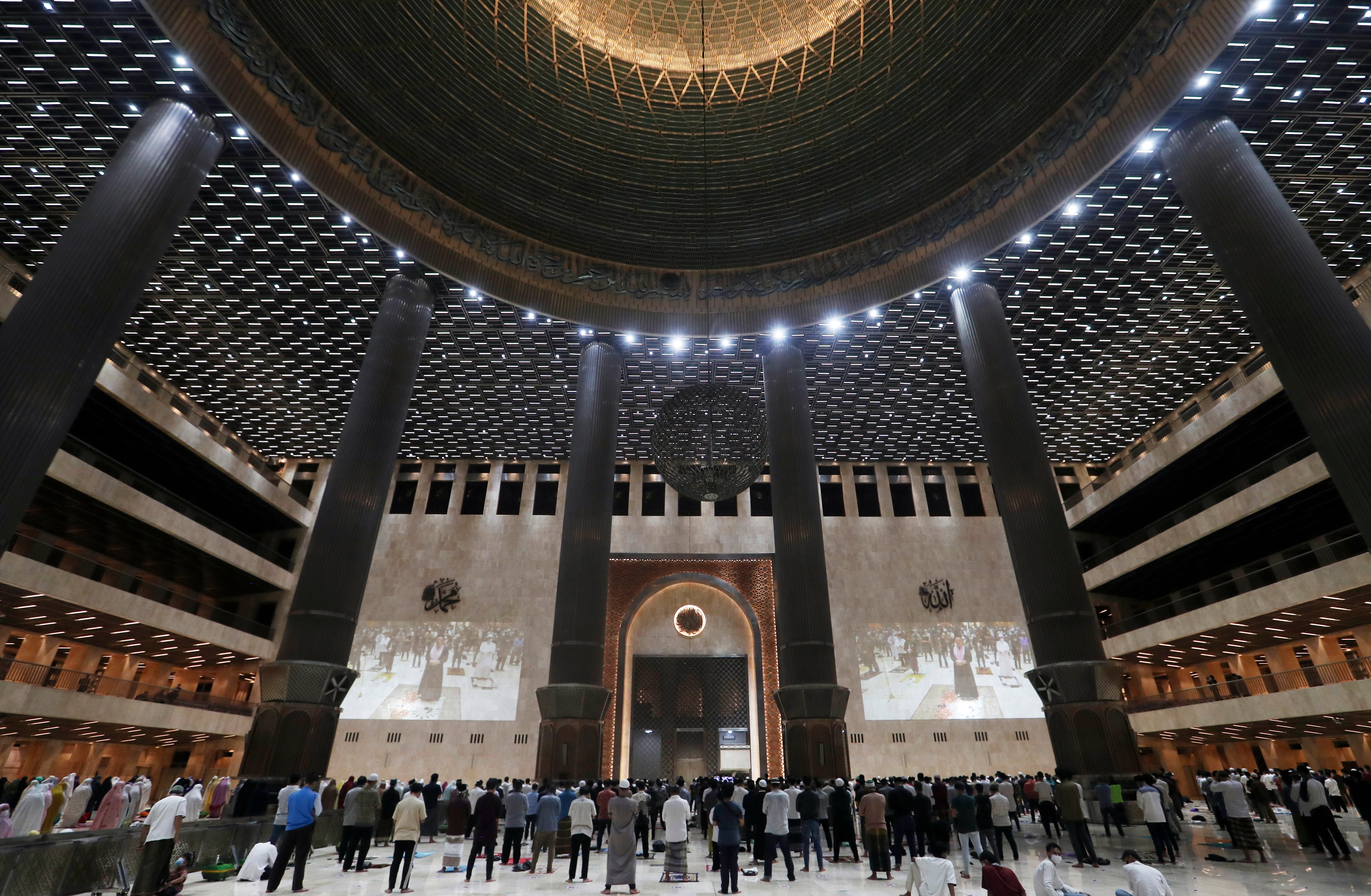Indonesian Muslims divided over when Ramadan begins
The Muslim holy month of Ramadan is set to begin in Indonesia and most of the Middle East, though many in the Southeast Asian nation and elsewhere are not planning to start observing the month of dawn-to-dusk fasting, prayer and religious devotion until Sunday

Your support helps us to tell the story
From reproductive rights to climate change to Big Tech, The Independent is on the ground when the story is developing. Whether it's investigating the financials of Elon Musk's pro-Trump PAC or producing our latest documentary, 'The A Word', which shines a light on the American women fighting for reproductive rights, we know how important it is to parse out the facts from the messaging.
At such a critical moment in US history, we need reporters on the ground. Your donation allows us to keep sending journalists to speak to both sides of the story.
The Independent is trusted by Americans across the entire political spectrum. And unlike many other quality news outlets, we choose not to lock Americans out of our reporting and analysis with paywalls. We believe quality journalism should be available to everyone, paid for by those who can afford it.
Your support makes all the difference.The Muslim holy month of Ramadan was set to begin Saturday in Indonesia and most of the Middle East, though many in the Southeast Asian nation and elsewhere were not planning to start observing the month of dawn-to-dusk fasting, prayer and religious devotion until Sunday.
Indonesia’s second-largest Islamic group, Muhammadiyah, which counts more than 60 million members, said that according to its astronomical calculations Ramadan begins Saturday. But the country's religious affairs minister had announced Friday that Ramadan would start on Sunday, after Islamic astronomers in the country failed to sight the new moon.
It is not the first time the Muhammadiyah has offered a differing opinion on the matter, but most Indonesians — Muslims comprise nearly 90% of the country’s 270 million people — are expected to follow the government’s official date.
Either way, the world's most populous Muslim nation was set to mark the most “normal” holy month since the start of the pandemic in 2020, as COVID-19 cases continued to decline.
President Joko Widodo announced last week that the government would ease COVID-19-related restrictions for the first time in two years. Indonesian Muslims can hold mass prayers during Ramadan this year and join their families back in their villages for the Eid celebration in early May to mark the end of the fasting month.
“This year, Muslims can hold congregational (nighttime prayers) and gather to pray in mosques,” Widodo said in televised remarks. “People who also want to travel to visit relatives in the traditional Eid homecoming are welcome to.”
The country reported just 2,930 cases on Friday, representing more than a 90% drop from mid-February, when an omicron-driven surge peaked at around 64,700 daily cases. Some 75% of Indonesia's eligible population of 208.2 million people have been fully vaccinated as of Friday.
Nighttime Ramadan prayers will return to normal this year. Worshippers in Indonesian mosques are no longer required to maintain physical distancing introduced during the pandemic, meaning more can attend the mosque. But certain rules remain, such as mandatory mask wearing, and worshippers are required to bring their own prayer mats.
Religious lectures or sermons can resume along with activities at mosques after prayers. The government also will allow people to hold “iftar” gatherings during Ramadan in restaurants, malls and cafes. Iftar occurs at sunset, when Muslims break their fast and it is usually a time people have dinner together with friends and family before nighttime prayers.
Authorities also allowed the return of Ramadan-related festivals after a two-year absence due to the pandemic, including a torchlight parade to welcome the Islamic fasting month.
“I am so excited to see the tradition of Ramadan returning entirely,” said Rahardian Irsan, a resident in Indonesia’s capital, Jakarta. “The longing for a normal Ramadan has finally been relieved today, although the pandemic has not yet ended."
Authorities shuttered all mosques in 2020 when Islam’s holiest period coincided with the start of the coronavirus pandemic, and clerics issued a fatwa, or edict, urging Muslims to pray at home over the holy month rather than congregate in crowded spaces and risk spreading the virus.
There were glimmers that Ramadan last year could feel less restricted, as mosques had reopened with strict health protocols and new rules in place, and as vaccine rollouts continued, but festivities that could attract crowds remained banned.